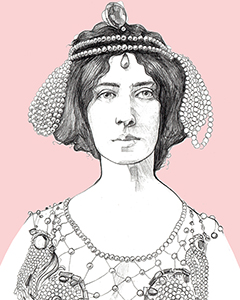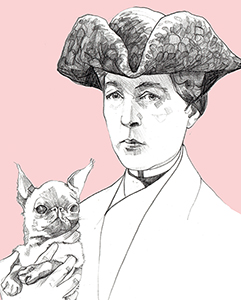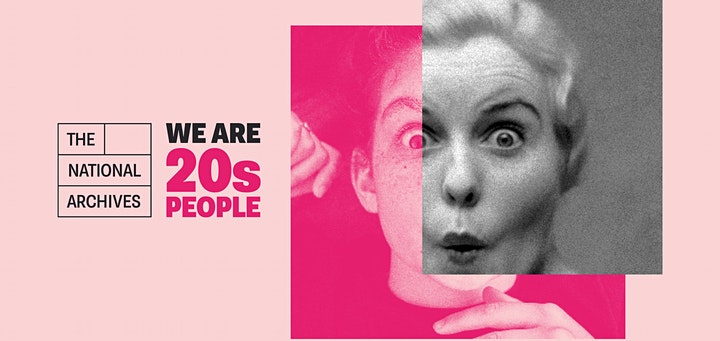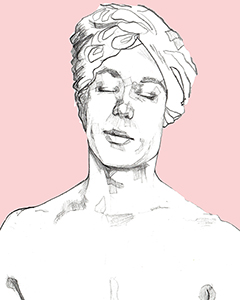Life was very different for members of the LGBTQ+ community in 1920s Britain; same sex relationships among women were a very controversial subject, and same sex relationships among men were illegal altogether. Maud, Bobby and Marguerite’s stories each show a different perspective of life in the British LGBTQ+ community of the 1920s, while all sadly being connected through themes of oppression and ignominy. Click each image or link to find out about the story behind it.
 Maud Allan
Maud Allan
The dancer accused of participating in a ‘cult’ of women
Maud Allan rose to fame with her interpretation of Salome, the titular character of Oscar Wilde’s play, which was censored by the Lord Chamberlain for its depiction of biblical characters.
Robert Hector Britt
The performer who hosted illicit parties
Robert ‘Bobby’ Britt is recorded in the 1921 Census as a valet, but his dream was to take to the stage. He performed as a dancer in the West End and to his friends privately; it was these performances-turned-parties that attracted the attention of the police.
 Marguerite Radclyffe-Hall
Marguerite Radclyffe-Hall
The author whose ‘obscene’ book was banned
Marguerite was a pioneer in the literary field, her works delving into then-controversial themes, such as lesbian relationships. She is rightly held up today as one of the vanguard who railed against censorship.
Meet Marguerite Radclyffe-Hall
What is 20 People of the 20s?
20 People of the 20s is a project where staff members at The National Archives have researched a story of someone from the 1920s. From family members and First World War service personnel, to famous performers and politicians, we hope these stories will encourage you to explore the breadth of experience in 1920s Britain. 20 People of the 20s is part of 20sPeople – our season to mark the release of the 1921 Census, connecting the 1920s and the 2020s. Find out more here.

